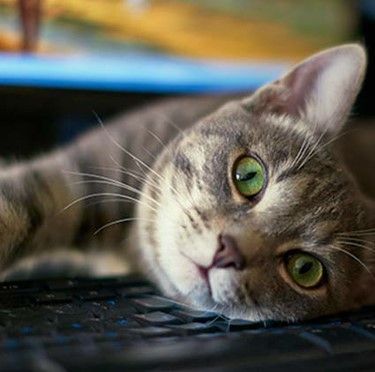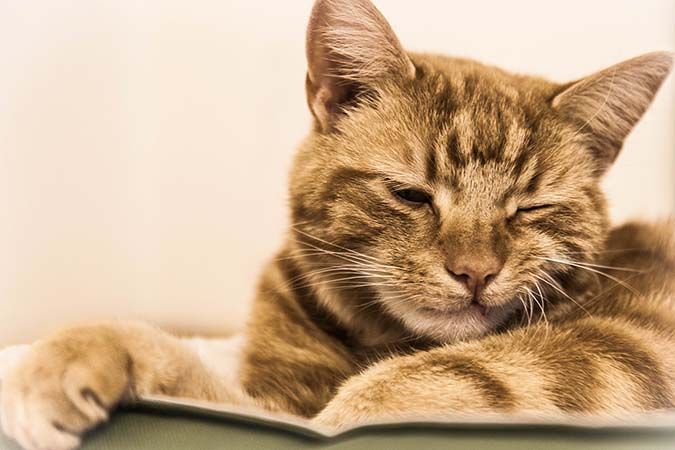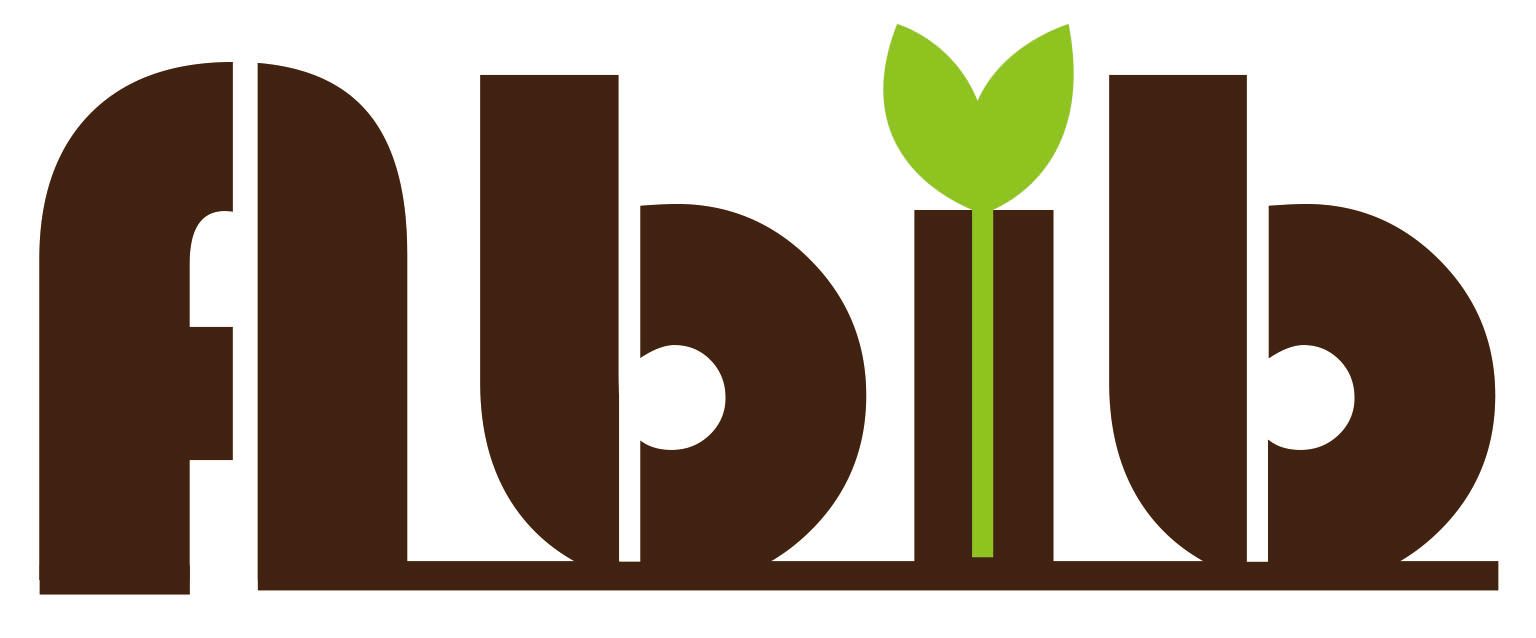ABIB BIO-TECHNOLOGY CO., LTD.
REMIND
Little reminder of love

[How does Chinese medicine treat pets with gastrointestinal problems? 】
Q1 What are the common prescriptions for regulating the gastrointestinal tract?
Most gastrointestinal problems come to the doctor because of symptoms such as acute vomiting, diarrhea or loss of appetite. Possible causes of these symptoms include indigestion, bacterial infection, viral infection, weather changes, etc. Common indigestion can be caused by eating too much at once, too greasy, or irritating food that is difficult to digest (such as too large pieces of food such as scallops, cherry tomatoes, or guava). In terms of treatment, we should generally follow the spirit of dialectical treatment to achieve good therapeutic effects.
◉The following are the more common dialectical types and their commonly used prescriptions:
- Food stagnation type: flatulence, vomiting sour water or foul-smelling stools. Treatment: Bohe Pills. Food stagnation, flatulence or nausea caused by simple indigestion can be treated with drugs such as Baohe Pills and Jiajiao Sanxian. The symptoms are usually relieved the next day.
- Mixed cold and heat type: The stomach is full or the abdomen is distended, and the patient stops eating after even a small amount of food. Nausea, soft stools, or stomach pain that refuses to be touched are similar to modern descriptions of acute and chronic gastric ulcers or duodenal ulcers. Banxia Xiexin Decoction, a traditional Chinese medicine used to treat food accumulation stagnation, has a very good effect.
- Deficiency and coldness of the spleen and stomach: fullness and distension of the stomach and abdomen, sometimes light and sometimes heavy, preferring to sleep in a warm environment, feeling tired and weak, and losing appetite; mostly in elderly animals. Treatment is with Lizhong Decoction or Houjiangbanganshen Decoction.
- Damp-heat accumulation type: stomach and abdominal fullness, nausea and vomiting, loose stools, short red urine, irritable animals will come to the owner. The key syndromes are red tongue with coating and soft and rapid pulse. Treatment is with Wang's Lianpu Drink.
- Excessive heat and internal knots: abdominal fullness lasting for many days, or abdominal hardness and pain for many days, or constipation, the animal will be irritable and come to the owner. The key to identifying the disease is that the pulse is deep and strong, and Chengqi decoction is the treatment of choice. Note that this type of symptoms can be seen in some intestinal obstructions or tumors. It is best to use X-ray, ultrasound, and blood tests at the same time to avoid delaying the condition.
- Bacterial infection, viral infection, weather changes and other reasons: often caused by external infection and internal cold, heat and dampness, leading to abnormal function of the spleen, stomach, small intestine and large intestine.
▶The main common types of dialectics are four categories:
①Dampness poisoning or summer heat: yellowish-brown stool, abnormal odor, and yellowish-red urine. Vomiting, nausea, bloating, upset and thirst. It is advisable to use traditional Chinese medicine that clears away heat, removes toxins, drains dampness and soothes the stomach, such as Phellodendron cypress, Coptis chinensis, rhubarb, Patchouli, Bamboo Ru, etc.
②Cold evil and internal dampness: bowel sounds and abdominal pain, stool or vomiting, watery stool. It is advisable to choose traditional Chinese medicine that relieves the surface and dispels cold, strengthens the spleen and removes dampness, such as Agastache rugosa, perilla, cinnamon twig, Atractylodes macrocephala, Poria cocos, pinellia, Magnolia officinalis, abdominal peel, etc.
③ Stomach stagnation after eating too much: nausea and vomiting, feeling sour and rancid. Excretion of filth and stench, and diarrhea will relieve pain. It is advisable to choose traditional Chinese medicines that can eliminate stagnation, harmonize the stomach, relieve vomiting and reduce diarrhea, such as hawthorn, malt, pinellia, forsythia, tuckahoe, radish seed, patchouli, divine song, etc.
④ Collapse due to epidemic virus: Sudden onset of illness, thirst, body heat, cold limbs, abdominal pain, diarrhea, and weakness. It is advisable to use traditional Chinese medicines that are used to detoxify and harmonize qi and tonify deficiency, such as dangshen, atractylodes, aconite, licorice, cinnamon, rugosa, jujube, poria, etc.

Q2 How are gastrointestinal problems diagnosed through traditional Chinese medicine?
The diagnosis of pet diseases in traditional Chinese medicine mainly relies on the four concepts of inspection, smelling, questioning and palpation, referred to as the "four diagnosis", and is combined with the physical examination of Western medicine to explore the current location of the disease.
- Inspection: It is a purposeful observation of the appearance of the pet.
- Auscultation: includes listening to sounds and smelling odors. The main purpose is to listen to changes in the level, strength, turbidity, and urgency of speech and breath, etc., in order to distinguish the deficiency, excess, cold, and heat of the disease.
- Consultation: It is to ask the owner or his accompanying person to learn about the condition and disease-related conditions.
- Diagnosis: It refers to a method of understanding the condition of an animal by touching its femoral artery. Pulse taking is also called pulse diagnosis, which is a method to observe changes in pulse conditions and identify the ups and downs of organ function, as well as deficiency and stagnation of qi, blood, fluid and essence. Physical examination combined with Western medicine can help identify the cause of gastrointestinal problems, help treat the cause and eliminate temporary discomfort.
Q3 Is it possible to solve the problem of gastrointestinal discomfort in furry children by starting from daily health care?
Daily health maintenance usually does not encourage eating nutritional supplements or special foods. We often tell owners to abide by the following principles, especially when eating fresh ingredients.
- Do not eat food if it comes into contact with dirty food or has expired.
- Don’t eat anything that is too big or too hard.
- Eat less or no cold food (fresh from the refrigerator) or uncooked food.
- Those who are elderly or have poor gastrointestinal function should try less new foods.
- Don’t eat too much food.

Q4 What is the dietary maintenance for those who are elderly or have a constitution that often causes acute gastroenteritis?
- Don't eat too much oil. (The owner can catch it with his hands first to see)
- Do not eat processed sweets such as bread, biscuits, etc.
- Do not eat indigestible foods such as rice dumplings, rice cakes, glutinous rice balls, nuts, etc.
Q5 What should I do if my furry child refuses to take Chinese medicine?
- Stuff the medicinal powder into capsules.
- Can be hidden in meat or cans.
Q6 Are the traditional Chinese medicines for pets the same as those for humans?
- Almost the same.
- Some formulas commonly used by Chinese veterinarians will be modified according to the pet's hot constitution, such as Sini Decoction.
Source: https://www.hotpets.com.tw/chinese-medicine/



